
Sohag: The Hidden Gem of Egypt's Nile Valley
Sohag, located in the heart of Egypt's Nile Valley, offers a unique blend of ancient history and modern life. As you walk through this vibrant city, you'll find a rich tapestry of traditions and cultures. The city is less crowded than Cairo or Luxor, making it a peaceful retreat with plenty to explore. One of the main attractions in Sohag is the White Monastery, also known as the Deir el-Abyad. This ancient Coptic Christian site dates back to the 4th century and is a must-visit for anyone interested in early Christian history. The Red Monastery, another significant Coptic site, is just a short drive away and equally fascinating with its well-preserved frescoes. Sohag is also home to the magnificent Abydos Temple, dedicated to Osiris, the god of the afterlife. This temple complex is one of the oldest in Egypt and offers a glimpse into the religious practices of ancient Egyptians. The city's local markets are bustling with life, offering everything from fresh produce to handmade crafts, making it an excellent place to experience local culture. For nature enthusiasts, the Nile River provides a scenic backdrop for various activities. Whether you choose to take a leisurely boat ride or simply enjoy the riverside views, the natural beauty of Sohag is sure to captivate you. With its rich history, cultural diversity, and serene landscapes, Sohag is a destination that promises a memorable experience.
Local tips in Sohag
- Visit the White Monastery and the Red Monastery early in the morning to avoid the crowds and enjoy a peaceful experience.
- Wear comfortable walking shoes as many of the historical sites require a fair amount of walking.
- Try the local cuisine in the city’s markets for an authentic taste of Sohag’s culinary delights.
- Hire a local guide for the Abydos Temple to gain deeper insights into its historical significance.
- Take a boat ride on the Nile River during sunset for a breathtaking view of the landscape.
Sohag: The Hidden Gem of Egypt's Nile Valley
Sohag, located in the heart of Egypt's Nile Valley, offers a unique blend of ancient history and modern life. As you walk through this vibrant city, you'll find a rich tapestry of traditions and cultures. The city is less crowded than Cairo or Luxor, making it a peaceful retreat with plenty to explore. One of the main attractions in Sohag is the White Monastery, also known as the Deir el-Abyad. This ancient Coptic Christian site dates back to the 4th century and is a must-visit for anyone interested in early Christian history. The Red Monastery, another significant Coptic site, is just a short drive away and equally fascinating with its well-preserved frescoes. Sohag is also home to the magnificent Abydos Temple, dedicated to Osiris, the god of the afterlife. This temple complex is one of the oldest in Egypt and offers a glimpse into the religious practices of ancient Egyptians. The city's local markets are bustling with life, offering everything from fresh produce to handmade crafts, making it an excellent place to experience local culture. For nature enthusiasts, the Nile River provides a scenic backdrop for various activities. Whether you choose to take a leisurely boat ride or simply enjoy the riverside views, the natural beauty of Sohag is sure to captivate you. With its rich history, cultural diversity, and serene landscapes, Sohag is a destination that promises a memorable experience.
When is the best time to go to Sohag?
Iconic landmarks you can’t miss
Sohag International Airport
Explore ancient Egypt! Sohag International Airport, your gateway to the wonders of Upper Egypt and convenient connections to the Gulf States.
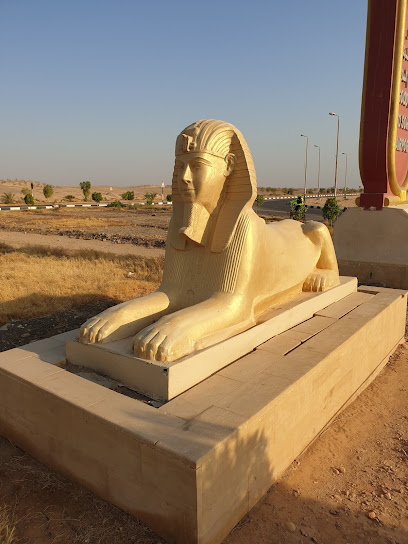
Teacher's Club
Experience Sohag's vibrant nightlife at Teacher's Club, a popular spot with pulsating music and a lively atmosphere.
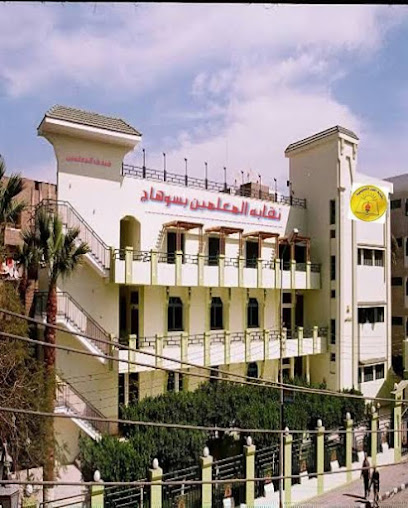
Restaurant & Cafe Planet
Sohag's Restaurant & Cafe Planet: A fusion of Japanese Izakaya and fast food in a vibrant, welcoming atmosphere. Open daily until 2:30 AM!
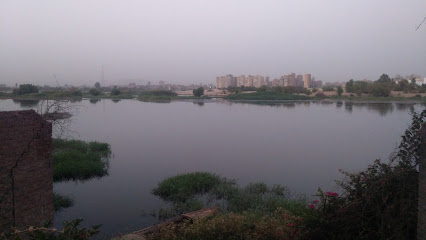
Temple of Abidos
Explore the Temple of Abidos, an ancient Egyptian marvel dedicated to Osiris, with stunning reliefs, the King List, and a rich history to discover.
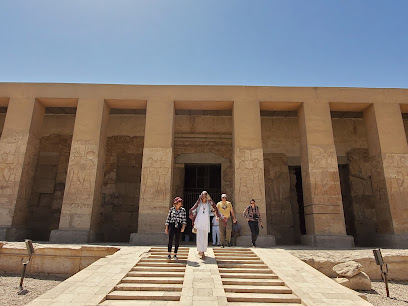
Elshahed Abdel Monem Ryad Mosque
Discover the spiritual and architectural beauty of Elshahed Abdel Monem Ryad Mosque in Sohag, a captivating landmark of Islamic culture.
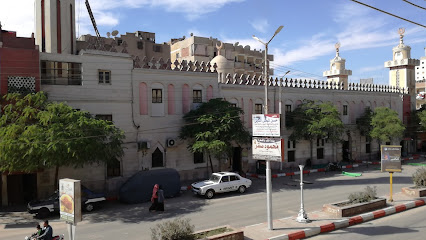
The Red Monastery
Explore the Red Monastery: A journey through early Christian art and architecture in the heart of Egypt's Sohag.
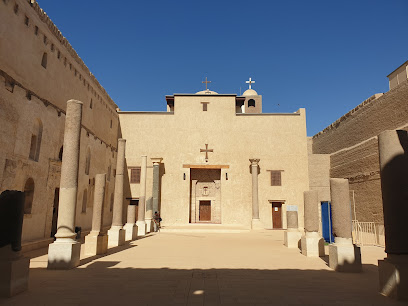
White Monastery
Explore the White Monastery near Sohag: a historic Coptic Orthodox site with unique architecture and centuries of religious significance.
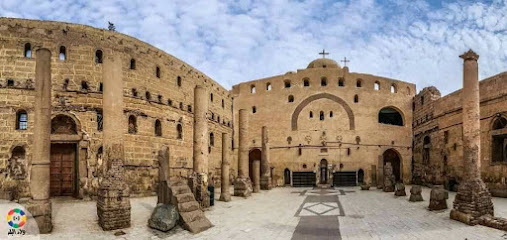
متحف سوهاج القومي - Sohag National Museum
Discover Upper Egypt's rich history and cultural heritage at the Sohag National Museum, showcasing artifacts from pharaonic to Islamic times.
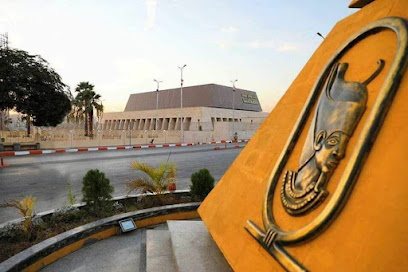
Osireion
Explore the mysteries of the Osireion in Abydos, a unique and enigmatic structure believed to be a cenotaph of Seti I.
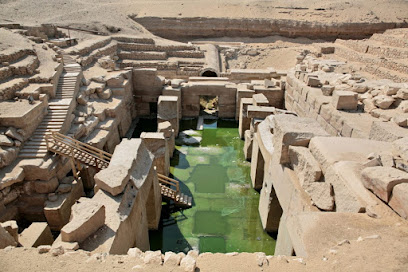
الجامع الكبير
Discover the spiritual heart of Al Monshaah at the Great Mosque, a testament to local faith and Islamic architecture in Sohag Governorate.
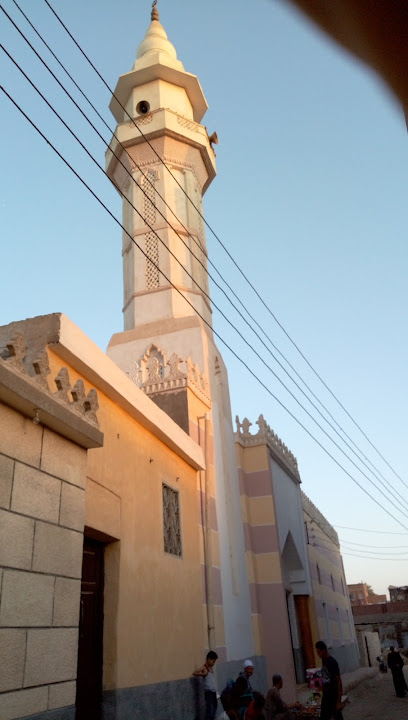
Abydos Egypt
Explore Abydos, the ancient Egyptian city and pilgrimage site, home to the Temple of Seti I and the famed Abydos King List.
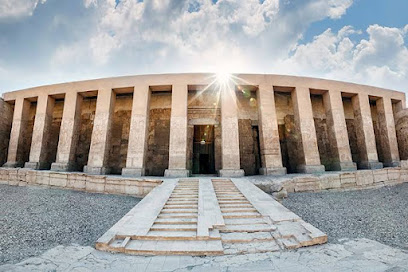
Shunet El Zebib
Explore Shunet El Zebib in Abydos, one of Egypt's oldest royal monuments, dating back to 2700 BCE, and a precursor to the iconic pyramids.
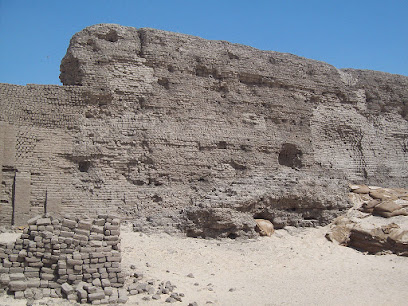
كوم السلطان
Explore Kom El Sultan in Sohag: An ancient Egyptian site with mud-brick structures, the Osiris Temple, and the only statue of Khufu discovered here.
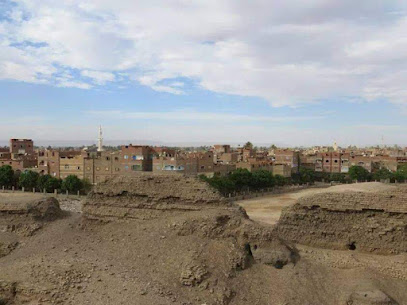
Train Crash Monument
Explore the Train Crash Monument in Tahta, a historical landmark that reflects on a tragic event in Egypt's railway history.

ميدان الصهريج
Explore Midan Al-Sahrij in Gerga for a genuine taste of Egyptian culture, vibrant local life, and delightful culinary experiences.

Unmissable attractions to see
حديقة ميدان الثقافة
Discover the serene beauty of the Garden of Sohag, a tranquil escape filled with lush greenery and local cultural charm.
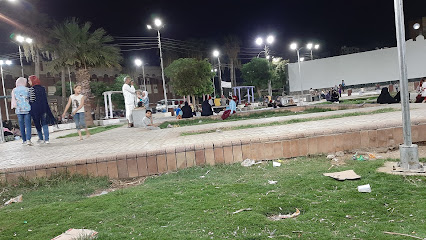
كورنيش النيل الشرقي
Experience the serene beauty and cultural vibrancy of the Eastern Nile Corniche in Sohag, a perfect getaway for nature lovers and cultural enthusiasts.
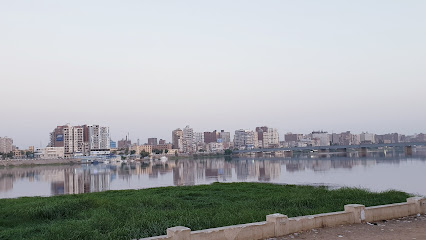
كورنيش ترعة الفؤادية
Explore the serene Kournish Tar'aa Al-Fu'adeya Park in Sohag, a beautiful escape into nature with vibrant gardens and peaceful pathways.
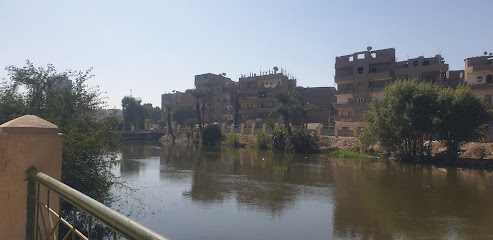
معبد رمسيس الثاني _مريت امون
Explore the Ramesside Temple in Akhmim, a historical treasure showcasing ancient Egyptian architecture and spirituality in the Sohag Governorate.
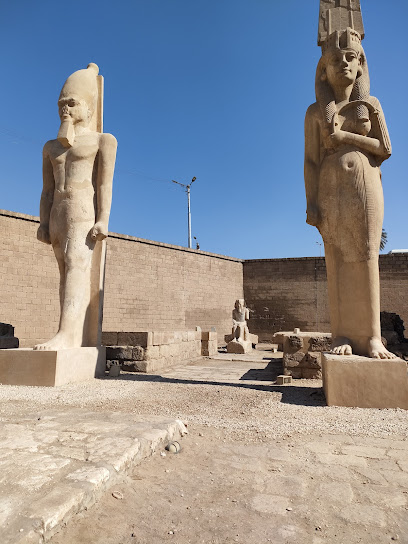
حديقة السندباد بارك
Experience tranquility and community spirit at Al-Sindbad Park, a lush retreat in Sohag, perfect for relaxation and nature lovers.
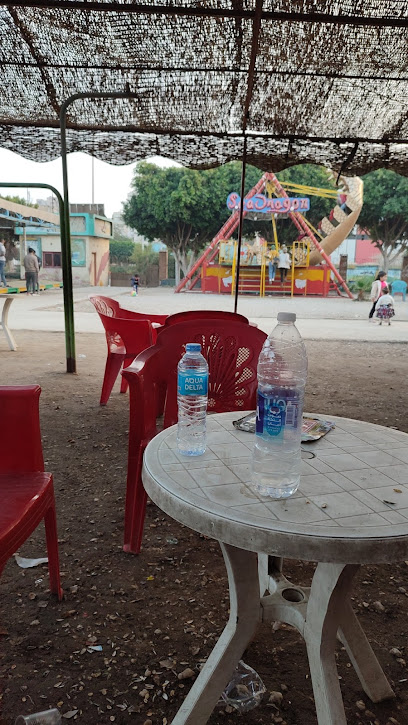
قرية المزالوه
Discover the serene beauty and rich culture of Al-Mazalouh, a hidden village gem in the Sohag Governorate of Egypt.

كرنفال
Discover كرنفال, a serene park in Sohag offering lush greenery, vibrant flowers, and a peaceful retreat from the city's hustle and bustle.
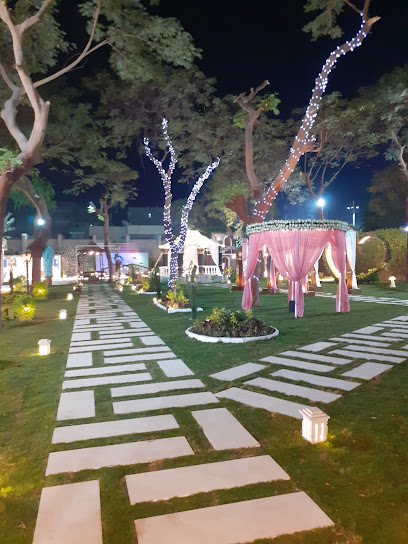
منسوجات يدويه تراثيه
Explore Yedoyah Heritage: A Cultural Gem in Sohag Governorate Showcasing Traditional Arts and Crafts of Egypt.
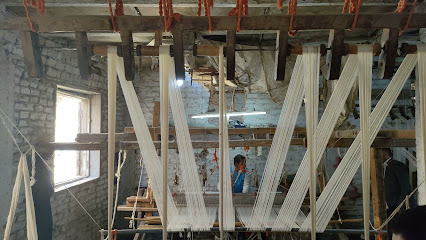
ميدان الساعة
Discover the vibrant culture and lively ambiance of Midan Al-Sahra, a must-visit tourist attraction in Sohag, Egypt.
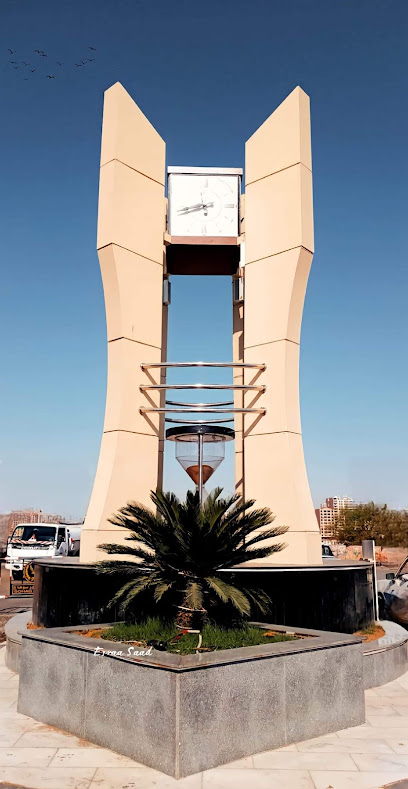
قصر المزلاوي
Experience the grandeur of Al-Mazlawy Palace, a historical gem in Sohag showcasing Egypt's architectural brilliance and rich cultural heritage.

أل خليل
Explore the breathtaking landscapes and rich biodiversity of Al-Khalil National Park, a serene escape in Sohag Governorate, Egypt.
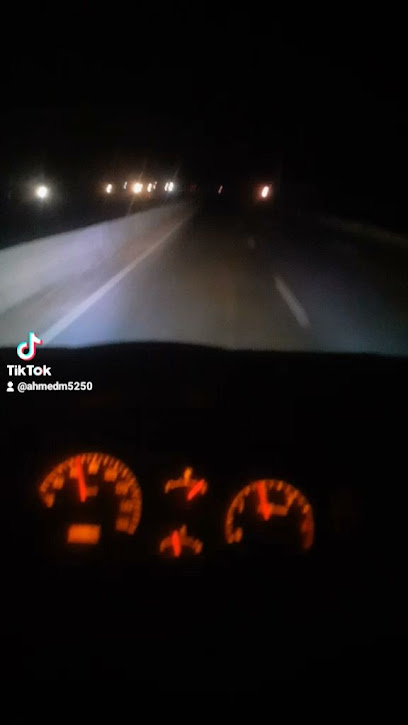
ممشي
Discover the serene beauty of Memshi Park in Sohag, a perfect getaway for relaxation and nature appreciation.
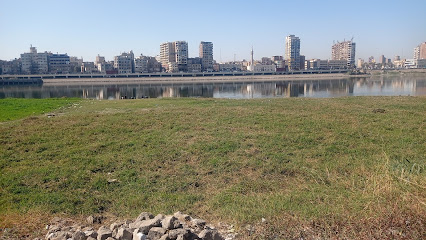
جنينة السيد ابو رضوان
Discover the serene beauty of Jnina Al-Sayed Abu Radwan, a tranquil garden paradise in Akhmim, perfect for relaxation and nature appreciation.

جنينه المقدس مساعد ابو محارب
Explore the Abu Muharib Shrine in Al Monshaah, a serene tourist attraction showcasing Egypt's rich spiritual heritage and captivating architecture.

craft center
Explore the rich tapestry of Egyptian craftsmanship at the Craft Center in Akhmim, where tradition and artistry come alive.

Essential places to dine
Wesaya El Gomhorya
Experience the vibrant flavors of fast food at Wesaya El Gomhorya in Sohag - where taste meets tradition!
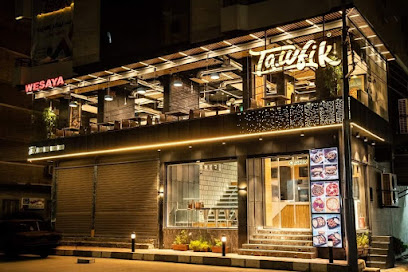
KFC
Savor delicious fried chicken and fast food favorites at KFC Sohag – where local flavor meets global taste.
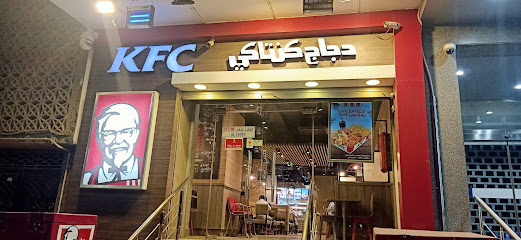
Restaurant & Cafe Planet
Experience the unique blend of Japanese Izakaya flavors and fast food convenience at Restaurant & Cafe Planet in Sohag.
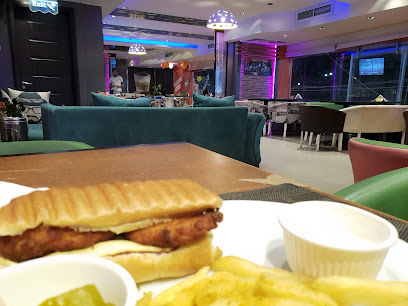
Pizza Smile
Experience the best pizza in Sohag at Pizza Smile – where traditional flavors meet modern delights.
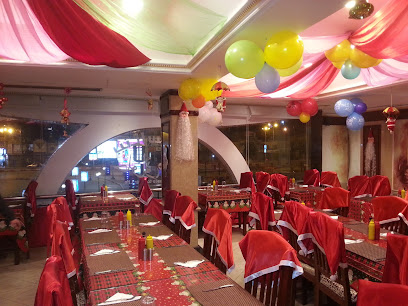
ام حسن سوهاج
Discover the flavors of Egypt at Um Hassan Sohag - your destination for authentic meat dishes in a warm setting.
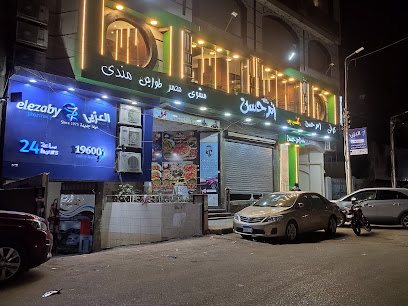
بيت الخيمه سوهاج
Discover the essence of Japanese izakaya culture at بيت الخيمه سوهاج - where tradition meets taste in a vibrant setting.
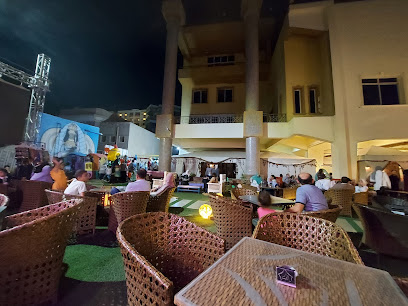
آبل فود Apple Food
Discover delicious fast food at Apple Food in Sohag - where flavor meets convenience in a vibrant dining atmosphere.
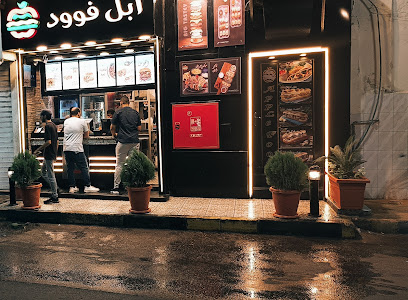
مطعم عويضه الجمهوريه
Experience the best of Egyptian cuisine at مطعم عويضه الجمهوريه in Sohag – a haven for meat lovers with authentic flavors.
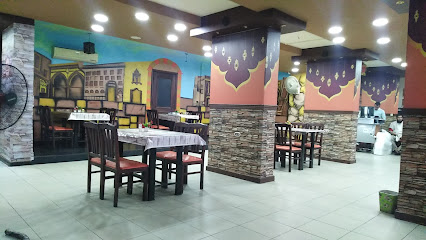
Pesca- بيسكا
Discover Pesca in Sohag: Where Fast Food Meets Local Flavors for an Unforgettable Dining Experience.
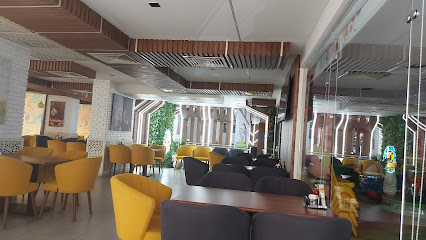
Rocca Cafe - Sohag
Experience authentic Japanese cuisine at Rocca Cafe in Sohag – where tradition meets contemporary dining.
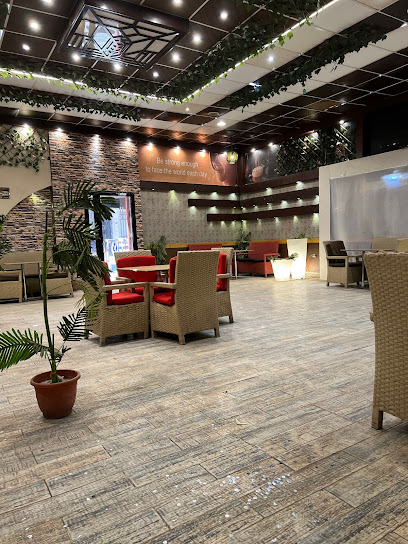
مطعم الشيخ رجب
Savor authentic Egyptian falafel at مطعم الشيخ رجب in Sohag—where tradition meets flavor in every bite.
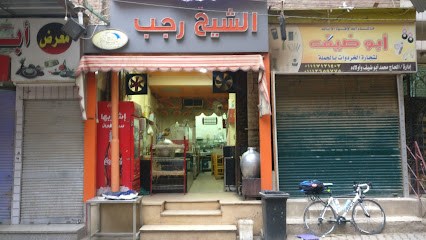
الشيخ رجب
Discover Al Sheikh Raghab: A culinary gem in Sohag serving delicious falafels made from fresh local ingredients.
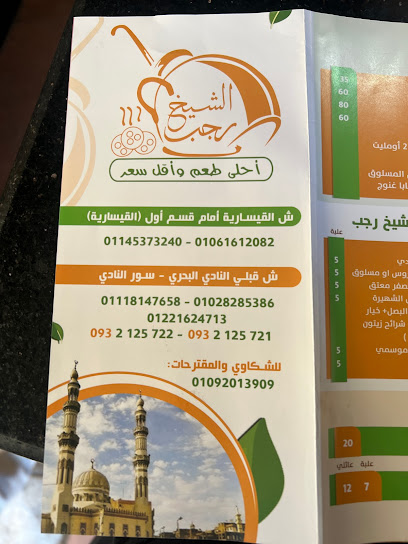
MANDOZ
Savor delicious fast food at MANDOZ in Sohag—where local flavors meet international favorites for every traveler’s delight.

مطعم هات حته
Experience the vibrant flavors of Egyptian fast food at مطعم هات حته in Sohag - where taste meets tradition.
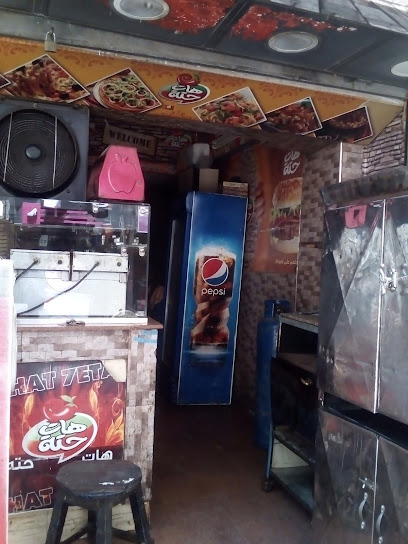
Restaurant & Cafe Beirut
Experience authentic Izakaya dining at Restaurant & Cafe Beirut along Sohag's beautiful Corniche with exquisite Japanese flavors.
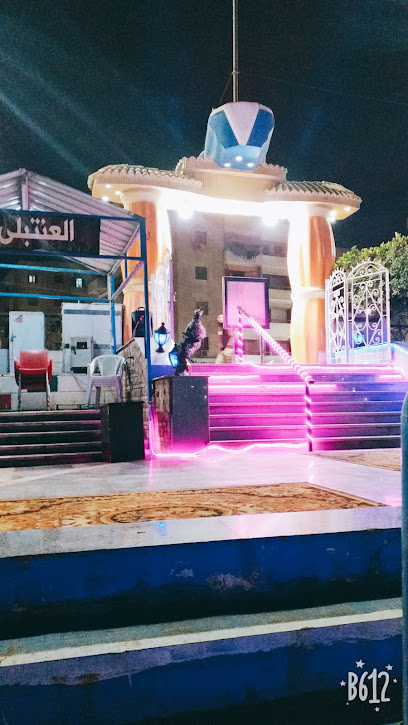
Markets, malls and hidden boutiques
Venus Mall
Discover the lively Venus Mall in Sohag, a shopping paradise filled with local and international brands, dining experiences, and entertainment for all ages.
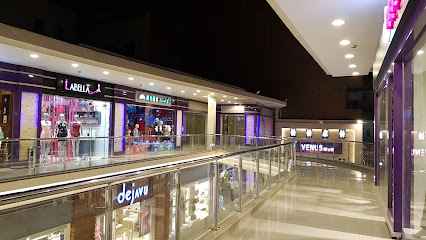
Tomato stores Sohag توميتو ستورز سوهاج
Discover the vibrant fashion scene at Tomato Stores Sohag, where style meets affordability in a welcoming atmosphere.
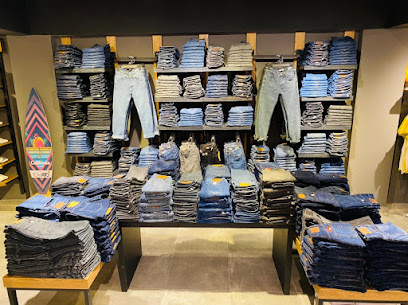
رنوش للاكسسوارات الحريمى
Explore a treasure trove of women's accessories at رنوش للاكسسوارات الحريمى in Sohag, where tradition meets contemporary style.
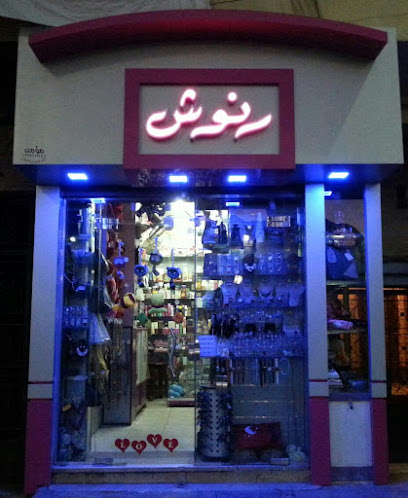
سوهاج شارع الحميات
Discover unique women's fashion and immerse yourself in the vibrant culture of Sohag at this stylish clothing store.
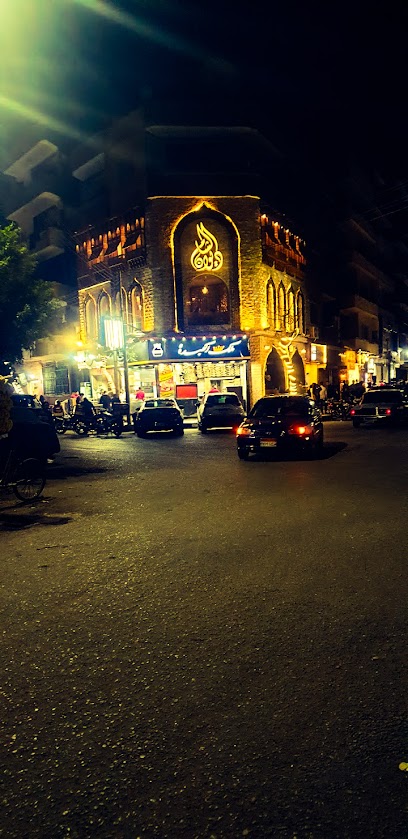
المولد سنتر
Explore the unique offerings of مولد سنتر, a charming home goods store in Sohag, perfect for discovering local crafts and essentials.

Zahran store Sohag
Explore Zahran Store in Sohag for unique gifts, home goods, and kitchen supplies that embody the spirit of Upper Egypt.
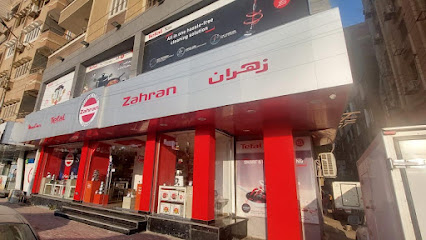
رادو
Explore رادو, the enchanting watch and toy store in Sohag, where timeless treasures and playful delights await your discovery.
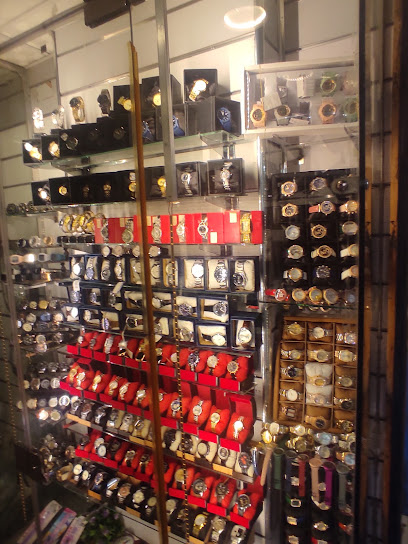
Pink Accesssories
Explore the vibrant world of fashion accessories at Pink Accessories in Sohag, where local culture meets unique style.

محل عجيبة
Discover unique fashion and accessories at محل عجيبة in Sohag, where local craftsmanship meets contemporary style.

Scorpion
Explore Scorpion in Sohag for the latest in Egyptian fashion, offering stylish women's and men's clothing in a welcoming atmosphere.

Silver Sohag
Explore Silver Sohag - where exquisite craftsmanship meets the vibrant culture of Sohag, offering stunning jewelry and local artistry.

SOLO bags for women
Discover stylish and chic bags at SOLO Bags for Women, a must-visit destination for fashionistas in Sohag.

محل روشال
Explore محل روشال in Sohag for a unique shopping experience, featuring traditional and modern women's clothing that embodies Egyptian culture.

سان مارك للموبيليات
Discover authentic Egyptian craftsmanship at سان مارك للموبيليات - your destination for unique furniture and home decor in Sohag.

Mulan brand
Discover unique women's fashion at Mulan Brand in Sohag, where style meets elegance and every outfit tells a story.

Essential bars & hidden hideouts
Heven_ هيفين
Discover tranquility at Heven Lounge in Sohag, where relaxation meets warm hospitality in a cozy setting.
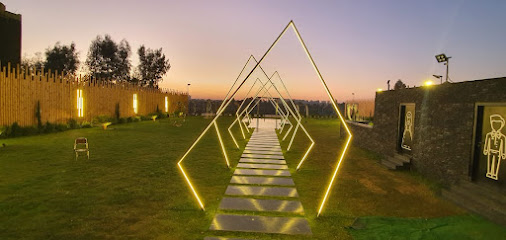
فروت اند زلابية fruit & zalabia
Discover the refreshing taste of Egypt at Fruit & Zalabia, where fresh juices and traditional sweets meet in a vibrant bar atmosphere.
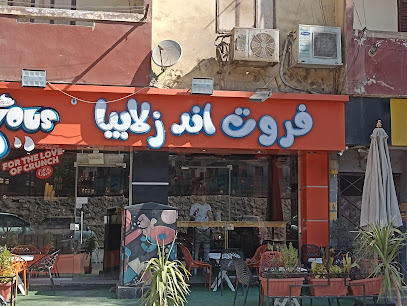
BAR
Experience the inviting atmosphere and delightful flavors at Sohag's favorite café, a perfect spot for coffee lovers and travelers alike.

عصارة عبدالحميد جمعه
Discover the lively nightlife of Tahta at عصارة عبدالحميد جمعه, a local bar offering unique flavors and a vibrant atmosphere.

الكوخ كافيه
Discover الكوخ كافيه, an enchanting cocktail bar in Al Kabsh, Sohag, offering a delightful menu in a cozy and inviting atmosphere.

المذاق المزع الحصري لبن العميد الكويتي ليس لدينا فروع اخرا فى محافظة سوهاج
Discover the exclusive taste of Kuwaiti cuisine at Ben Al-Ameed, a vibrant bar in Sohag offering authentic dishes and a rich cultural experience.
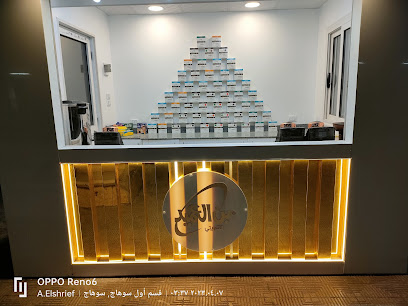
مزرعة الشيخ البدوى
Experience the vibrant culture and refreshing drinks at مزرعة الشيخ البدوى, a hidden gem in Sohag Governorate, Egypt.

عصام 2025
Experience the vibrant local culture at عصام 2025, a premier bar in Al Monshaah offering delightful drinks and a lively atmosphere.

بزبزبن
Experience the vibrant nightlife at بزبزبن, a lively bar in Sohag, Egypt, where locals and tourists come together for unforgettable evenings.

تىااو
Experience the vibrant nightlife of تىااو, where local culture meets a lively bar atmosphere in the heart of Akhmim.

حسني ابوشراخ
Immerse yourself in the vibrant nightlife of Sohag at حسني ابوشراخ, where local culture meets refreshing drinks in a lively atmosphere.

وكر الشمامين والبلطجيه وضريبة المخدرات ليلا
Experience the lively atmosphere of Vakar Al-Shamamin, a must-visit pub in Akhmim, where local culture and hospitality come alive.

نيده ارض الابطال
Experience the vibrant atmosphere of Nida, the bar in Sohag Governorate where Egyptian culture meets leisurely relaxation in a perfect setting.

جراند سيتي
Experience the vibrant nightlife at جراند سيتي, a premier bar in Saqultah, Sohag Governorate, blending local culture with modern entertainment.

Local Phrases
-
- Helloمرحبا
[Marhaba] - Goodbyeوداعا
[Wada'an] - Yesنعم
[Naam] - Noلا
[La] - Please/You're welcomeمن فضلك
[Min fadlik] - Thank youشكرا
[Shukran] - Excuse me/Sorryعذرا
[A'ithr] - How are you?أزيك؟
[Ezayak?] - Fine. And you?تمام. وأنت؟
[Tamam. Wa anta?] - Do you speak English?بتتكلم انجليزي؟
[Betetkalem Ingleezi?] - I don't understandأنا مش فاهم
[Ana mish fahem]
- Helloمرحبا
-
- I'd like to see the menu, pleaseعايز أشوف القائمة من فضلك
[Ayez ashof el qaima min fadlik] - I don't eat meatأنا ما بآكلش لحم
[Ana ma baakelsh lahm] - Cheers!في صحتك!
[Fi sahtak!] - I would like to pay, pleaseعايز أدفع من فضلك
[Ayez adfaa min fadlik]
- I'd like to see the menu, pleaseعايز أشوف القائمة من فضلك
-
- Help!النجدة!
[Enajda!] - Go away!اروح عني!
[Eruh anni!] - Call the Police!اتصل بالشرطة!
[Etasel beshorta!] - Call a doctor!اتصل بطبيب!
[Etasel betabib!] - I'm lostانا ضايع
[Ana daye'] - I'm illانا مريض
[Ana mareed]
- Help!النجدة!
-
- I'd like to buy...عايز أشتري...
[Ayez eshteri...] - I'm just lookingأنا بس بشوف
[Ana bas beshoof] - How much is it?بكام؟
[Bekam?] - That's too expensiveده غالي أوي
[Da ghali awe] - Can you lower the price?تنزل السعر؟
[Tenzel el seer?]
- I'd like to buy...عايز أشتري...
-
- What time is it?كام الساعة؟
[Kam el sa'a?] - It's one o'clockالساعة واحدة
[El sa'a waheda] - Half past (10)نص عشرة
[Nos aashara] - Morningصباح
[Sobah] - Afternoonبعد الظهر
[Baad el duhur] - Eveningمساء
[Masa'] - Yesterdayالأمس
[El ams] - Todayاليوم
[El youm] - Tomorrowغدا
[Ghadan] - 1واحد
[Wahed] - 2اتنين
[Itnain] - 3تلاتة
[Talata] - 4أربعة
[Arba'a] - 5خمسة
[Khamsa] - 6ستة
[Sitta] - 7سبعة
[Sab'a] - 8ثمانية
[Thamania] - 9تسعة
[Tesa'a] - 10عشرة
[Aashara]
- What time is it?كام الساعة؟
-
- Where's a/the...?فين...؟
[Fein...?] - What's the address?إيه العنوان؟
[Eh el anwan?] - Can you show me (on the map)?تقدر توريني (على الخريطة)؟
[Taqdar tawarini (ala el khareeta)?] - When's the next (bus)?إمتى الباص التاني؟
[Emta el bas el tany?] - A ticket (to ....)تذكرة (ل...)
[Tazkara (la...)]
- Where's a/the...?فين...؟
History of Sohag
-
Abydos, located within modern-day Sohag, is one of the oldest cities of ancient Egypt and a significant archaeological site. It served as a burial ground for Egypt’s earliest kings and was considered a sacred city. The ancient Egyptians believed Abydos was the gateway to the afterlife, and it became a major religious center dedicated to Osiris, the god of the underworld. The Temple of Seti I, an outstanding structure in Abydos, is renowned for its well-preserved hieroglyphics and intricate reliefs, offering a glimpse into the religious practices and royal lineage of ancient Egypt.
-
Sohag is home to several important Coptic Christian sites that underscore its religious significance. The White Monastery and the Red Monastery, named for the color of their respective building materials, date back to the 4th and 5th centuries AD. These monasteries were vital centers for Coptic monasticism and scholarship. The White Monastery, founded by Saint Shenouda the Archimandrite, held a vast library of religious texts and was a hub for Coptic culture and learning. The architectural and artistic heritage of these monasteries reflects the rich history of early Christian Egypt.
-
With the advent of Islam in Egypt, Sohag experienced significant cultural and architectural developments. The town of Akhmim, part of the Sohag Governorate, was known for its Islamic architecture and bustling markets. During the Ottoman period, Sohag saw the construction of mosques and other structures that highlight the blend of Islamic and local architectural styles. The Al-Mahmoudiya Mosque, dating back to the 19th century, stands as a testament to the Ottoman influence in the region.
-
In contemporary times, Sohag has grown into a vibrant city that seamlessly blends its rich historical heritage with modern development. The city is an educational hub, home to Sohag University, which attracts students from across Egypt. Modern infrastructure coexists with ancient sites, making Sohag a unique destination for those interested in exploring both Egypt's ancient past and its dynamic present. The city's markets, cultural festivals, and local crafts reflect the enduring traditions and evolving culture of this historic region.
Sohag Essentials
-
Sohag is located in Upper Egypt, approximately 467 kilometers south of Cairo. The nearest international airport is Sohag International Airport (HMB), which has direct flights from several Middle Eastern countries. Alternatively, you can fly into Cairo International Airport and take a domestic flight to Sohag. Trains are also a popular and scenic option for reaching Sohag from Cairo, with regular services operated by Egyptian National Railways. Buses and private taxis are also available for those who prefer road travel.
-
In Sohag, you can get around using a combination of public transportation and taxis. The city has a network of minibuses and microbuses that connect different neighborhoods and nearby towns. Taxis are plentiful and relatively inexpensive, but make sure to negotiate the fare before starting your journey. For a more comfortable and flexible option, consider renting a car. Walking is also a viable option for short distances, especially in the city center.
-
The official currency in Egypt is the Egyptian Pound (EGP). Credit cards are accepted in larger hotels, restaurants, and some shops, but it is advisable to carry cash for smaller establishments and markets. ATMs are widely available in Sohag, so you can withdraw cash as needed. Make sure to have small denominations, as change can sometimes be hard to come by.
-
Sohag is generally a safe destination for tourists, but it is always wise to exercise standard precautions. Avoid walking alone at night in unfamiliar areas and be vigilant about your belongings in crowded places. While there are no specific high-crime areas targeting tourists in Sohag, staying aware of your surroundings is advisable. Petty theft like pickpocketing can occur, so keep your valuables secure.
-
In case of an emergency, dial 122 for the police, 123 for medical emergencies, and 180 for the fire department. The main hospital in Sohag is Sohag University Hospital, which provides a range of medical services. Pharmacies are available throughout the city for minor health issues. It is recommended to have travel insurance that covers medical emergencies.
-
Fashion: Do dress modestly, covering shoulders and knees, especially when visiting religious sites. Don't wear revealing clothing. Religion: Do respect local customs and traditions. Remove your shoes and cover your head when entering mosques. Public Transport: Do be respectful and give up your seat to elderly passengers. Don't eat or drink on public transport. Greetings: Do greet people with a handshake. A slight bow of the head is also a sign of respect. Eating & Drinking: Do try local delicacies and accept food offerings graciously. Don't refuse hospitality, as it is considered impolite.
-
To experience Sohag like a local, visit the bustling markets where you can buy fresh produce and traditional Egyptian goods. Engage with locals, as they are often friendly and willing to share stories about the city's history and culture. Don’t miss visiting the White Monastery and the Red Monastery, both of which offer fascinating insights into early Christian monasticism in Egypt. For a unique experience, consider taking a felucca ride on the Nile River to enjoy the scenic beauty of the area.
Trending Landmark in Sohag
Nearby Cities to Sohag
-
Things To Do in Asyut
-
Things To Do in Luxor
-
Things To Do in Minya
-
Things To Do in El Gouna
-
Things To Do in Hurghada
-
Things To Do in Beni Suef
-
Things To Do in Aswan
-
Things To Do in Sharm El Sheikh
-
Things To Do in Dahab
-
Things To Do in Marsa Alam
-
Things To Do in Suez
-
Things To Do in Cairo
-
Things To Do in Zagazig
-
Things To Do in Ismailia
-
Things To Do in Eilat








